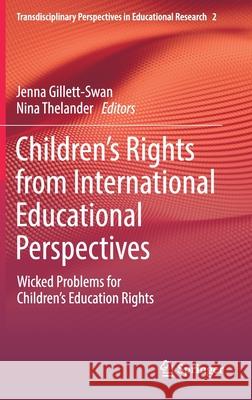Children's Rights from International Educational Perspectives: Wicked Problems for Children's Education Rights » książka
topmenu
Children's Rights from International Educational Perspectives: Wicked Problems for Children's Education Rights
ISBN-13: 9783030808600 / Angielski / Twarda / 2021 / 260 str.
Children's Rights from International Educational Perspectives: Wicked Problems for Children's Education Rights
ISBN-13: 9783030808600 / Angielski / Twarda / 2021 / 260 str.
cena 441,75
(netto: 420,71 VAT: 5%)
Najniższa cena z 30 dni: 424,07
(netto: 420,71 VAT: 5%)
Najniższa cena z 30 dni: 424,07
Termin realizacji zamówienia:
ok. 22 dni roboczych
Dostawa w 2026 r.
ok. 22 dni roboczych
Dostawa w 2026 r.
Darmowa dostawa!
Kategorie:
Kategorie BISAC:
Wydawca:
Springer
Seria wydawnicza:
Język:
Angielski
ISBN-13:
9783030808600
Rok wydania:
2021
Wydanie:
2021
Numer serii:
001180674
Ilość stron:
260
Waga:
0.55 kg
Wymiary:
23.39 x 15.6 x 1.6
Oprawa:
Twarda
Wolumenów:
01
Dodatkowe informacje:
Wydanie ilustrowane











